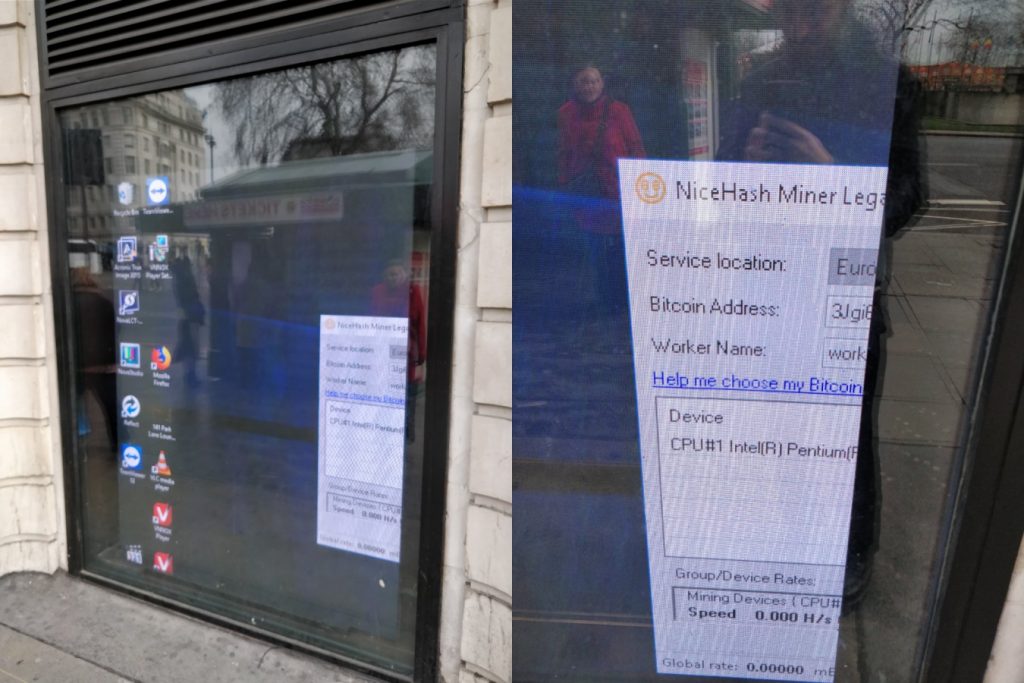The sudden surge in the price of Bitcoin encouraged the world to mine more cryptocurrencies but some do it the right way while the cybercriminals do it the wrong way and unsuspecting users have to pay the price. This is exactly what happened in London where hackers took over computer systems and began to mine Bitcoin cryptocurrency – Little did they know, the system was responsible for running digital advertising screen.
Advertising screen hacked with NiceHash code
This was identified by Terence Eden, a tech enthusiast in London. Although the exact location was not mentioned by Eden, a couple snapshots shared by him show the compromised system was running on Windows (probably Windows 7) and the cryptomining code was issued by NiceHash, the world’s largest cryptocurrency mining marketplace that provides cryptocurrency mining codes to users which are then embedded in websites and software that use visitors’ CPU power to generate Bitcoin.
NiceHash is the same company which suffered a massive hacking attack last year in which hackers stole a whopping $67 million by emptying its entire Bitcoin wallet.
The left-hand snapshot shows the compromised advertising screen displaying desktop rather than an advertisement while a close look at the right-hand screenshots shows NiceHash miner‘s message “NiceHash Miner Legacy” along with the address where Bitcoin is sent.

The right-hand image also shows that the system code is mining with a hash-rate of zero which means the attacker is not making any money out of it and their hard work is going in vain. “Someone cleverer than me figures out which wallet starts with 3Jgi6 and is receiving these coins,” said Eden.
It is true that there is nothing new in publically displaying Windows system messages but this one is first of its kind. Eden maintains a blog solely based on images featuring broken-down Windows displays. You can visit the blog here.
Remember, the technique in which websites are compromised to mine cryptocurrency is also known as in-browser cryptojacking in which CPU power of unsuspected website visitors is secretly used by hackers to generate cryptocurrency while users end up with expensive electricity bills.
Cryptocurrency mining attacks are increasing
Just yesterday it was reported that hackers compromised a popular plugin to infect more than 4,000 government websites in the United Kingdom and the United States with a CoinHive’s cryptomining javascript code which generated Monero. This indicates that hackers are willing to go to any level to achieve their goals and make money at other people expenses.
Previously prominent sites like YouTube, CBS’s ShowTime, Starbucks, and BlackBerry were also compromised to mine cryptocurrencies while ThePirateBay was caught twice mining without informing its visitors.
How to block Cryptocurrency Mining In Your Web Browser
There are two Chrome extensions No Coin and minerBlock developed to block any crypto miners from using your computing power. Moreover, you can also use Opera Browser which blocks cryptocurrency miners on your desktop and mobile phone (Android and iOS) from using their computer power to generate money.
